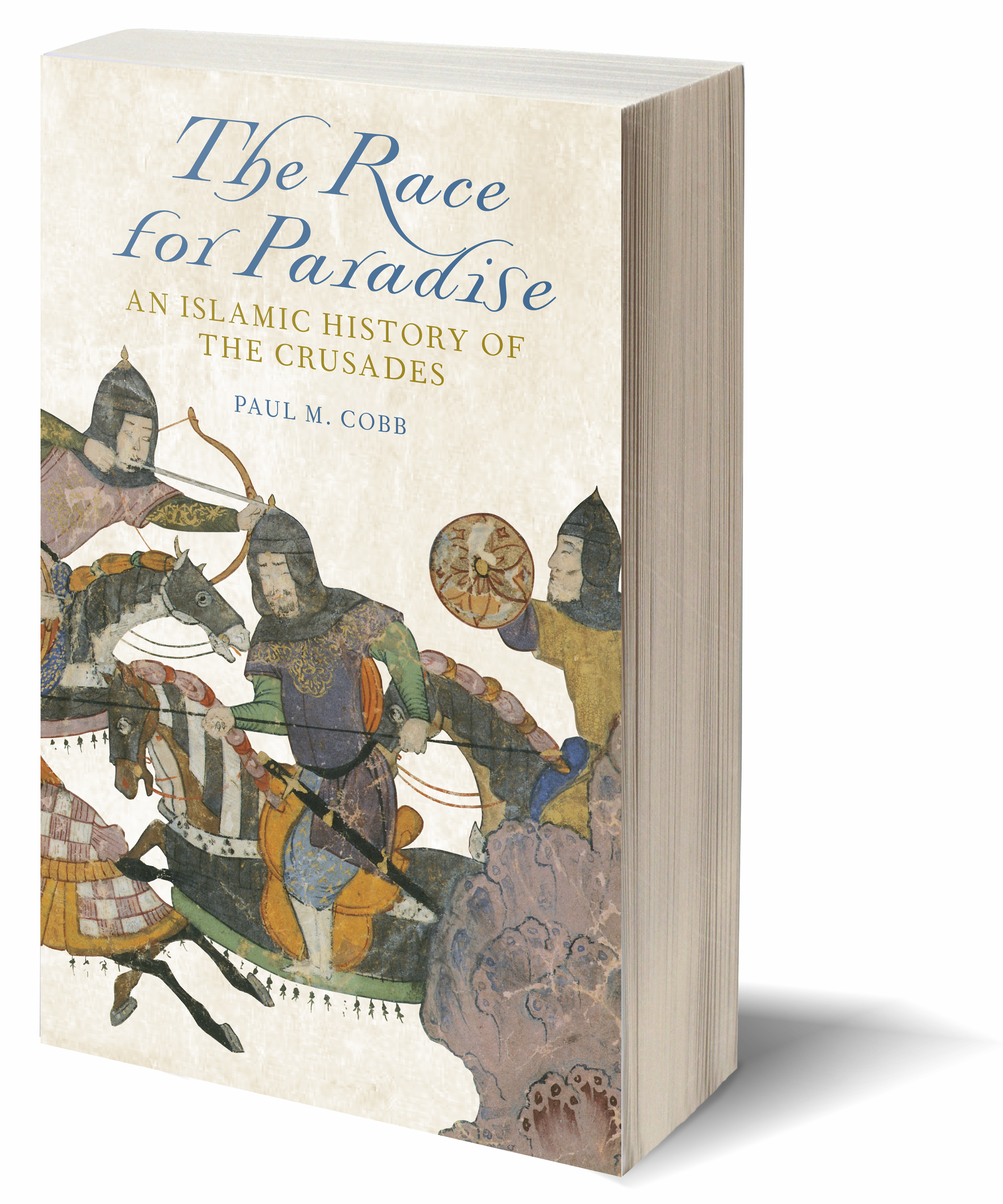
The Crusades have been understood almost entirely from the Western perspective: at first, a triumphant tale of a holy quest, and more recently as an embarrassing episode of intolerance. Professor of Near Eastern Languages and Civilizations Paul M. Cobb believes it’s time for a different angle.
Cobb’s new book The Race for Paradise: An Islamic History of the Crusades looks at the event “as a period in Islamic history in its own right, not some exotic episode that intrudes like a rude houseguest and then leaves in a couple of centuries.” Using contemporary Islamic histories and religious writings, he found “a very messy affair, not one of good guys and bad guys but one which really explodes from the sources as a multifaceted, diverse, and wonderfully complex period.”
Conventional histories have the Crusades beginning in 1095, when Pope Urban II proclaimed the First Crusade with the goal of restoring Christian access to holy places around Jerusalem, and ending in 1291 when the last Europeans were expelled from the Holy Land. The area involved has been limited to the region known as the Levant: generally Syria, Israel/Palestine, Lebanon, and part of Egypt.
Islamic sources, however, see the Crusades as just another outburst of a more general Frankish (European) aggression that began when the Normans conquered Islamic Sicily around 1000 and stretched into al-Andalus (Spain) and across the Mediterranean. Cobb considers the end date harder to fix, but opted for 1492, when the last Muslims were forced out of Spain.
From this perspective the event was a Mediterranean-wide, 500-year phenomenon in which Muslims regained bits of the Levant but lost Spain and Sicily and faced the fear of constant invasion on all fronts by a culture that was perceived as inherently violent. Cobb says, “It was a kind of cosmic challenge: How was it that these barbarians from the north were able to score these major victories against our divinely protected, ordered, civilized society?”
The long timespan meant the period was not just one of war. There was plenty of diplomacy, ambassadorial exchanges, and treaties, but the cultural interactions also went down to the personal level, to commerce, intermarriage, friendship, and intellectual exchange. Not just commodities but ideas and practices moved back and forth across cultural borders. Cobb says, “You get the sense from certain sources that some Franks, once they settled down, could be quite decent folk if you were willing to put up with their eccentricities.” Western Europe, once a mysterious place on the edge of the known world, was integrated into the body of knowledge that an educated person was expected to know about the world.
Cobb wrote his book for a general audience, not to claim the Islamic perspective is better, but to suggest that multiple perspectives be brought to bear on these events. “I think the history of the Middle East is under attack and oversimplified by pundits today,” he says. “It may make for a good movie, but it’s bad history because history is like real life. It’s messy and complicated. Properly done, history should make it impossible to score very simple points.”


